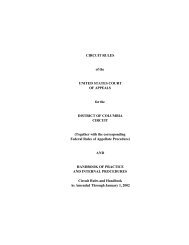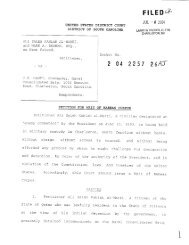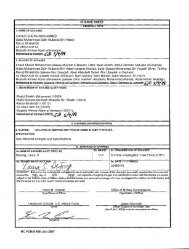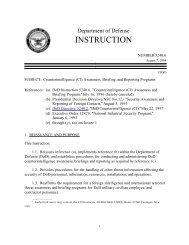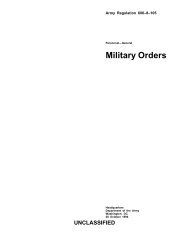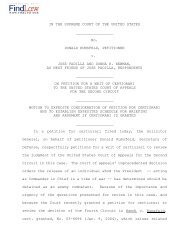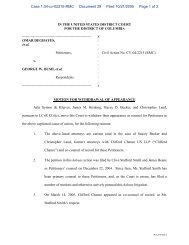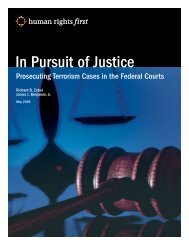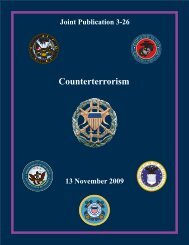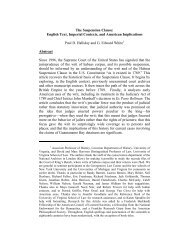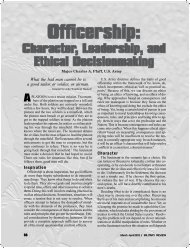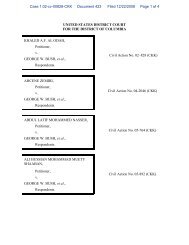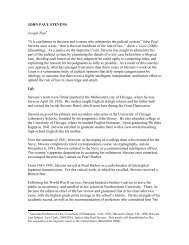Government Merits Brief - Hamdan v. Rumsfeld
Government Merits Brief - Hamdan v. Rumsfeld
Government Merits Brief - Hamdan v. Rumsfeld
Create successful ePaper yourself
Turn your PDF publications into a flip-book with our unique Google optimized e-Paper software.
43<br />
E. Petitioner Does Not Enjoy The Protections Of Our Constitution<br />
Petitioner’s argument that the President lacks the authority<br />
to convene a military commission to try and punish him for<br />
his alleged war crimes fails for the many independent reasons<br />
discussed above. Because that argument is predicated on the<br />
proposition (Br. 10-13) that the Constitution places structural<br />
limits on the President’s authority to convene military commissions,<br />
however, it fails for an additional, even more fundamental<br />
reason. As an alien enemy combatant detained outside<br />
the United States, petitioner does not enjoy the protections of<br />
our Constitution. See Reply Br. in Support of Mot. to Dismiss<br />
for Lack of Jurisdiction 18-20.<br />
III. PETITIONER’S PROCEDURAL OBJECTIONS TO HIS<br />
MILITARY COMMISSION ARE UNFOUNDED<br />
A. The Procedures Established For Petitioner’s Military<br />
Commission Do Not Contravene The UCMJ<br />
Petitioner argues (Br. 19-23) that the UCMJ requires that<br />
any military commission proceeding must conform to the<br />
rules for courts-martial. 19 He relies on Article 36(a) of the<br />
UCMJ, 10 U.S.C. 836(a), which authorizes the President to<br />
promulgate regulations establishing procedures for military<br />
Gordon England, Secretary of the Navy, Regarding the Implementation of<br />
CSRT Procedures for Enemy Combatants Detained at Guantanamo (July 29,<br />
2004) . In<br />
addition, unlike an Article 5 or Army Regulation 190-8 tribunal, the CSRT<br />
guaranteed petitioner the rights to have a personal representative for<br />
assistance in preparing his case, to receive an unclassified summary of the<br />
evidence before the hearing, and to introduce relevant documentary evidence.<br />
19 As a preliminary matter, it is not appropriate to consider objections to the<br />
procedures governing the military commissions before the commission has<br />
even applied them to petitioner. The DTA expressly authorizes detainees to<br />
raise such challenges following a final adverse decision. See § 1005(e)(3), 119<br />
Stat. 2743.



